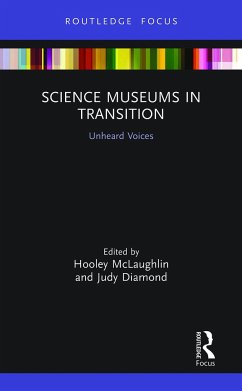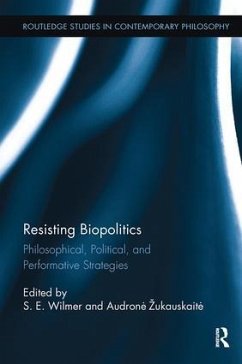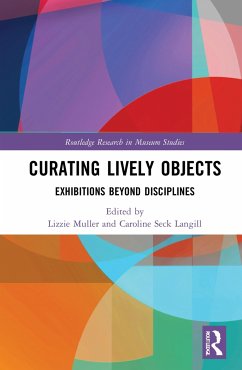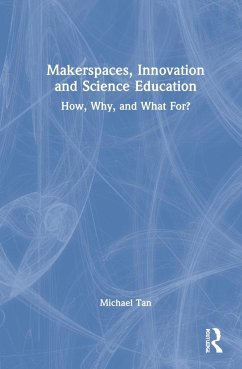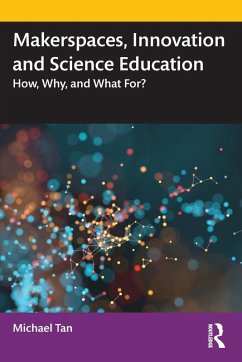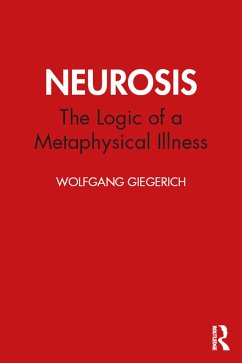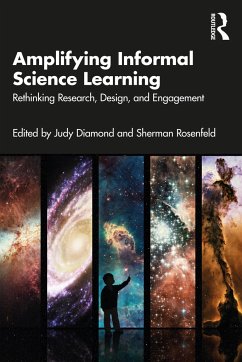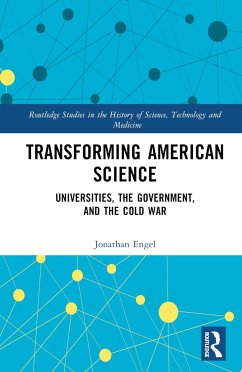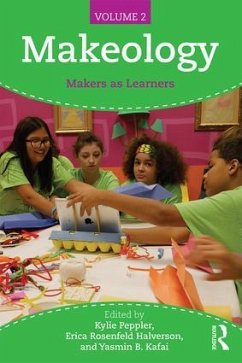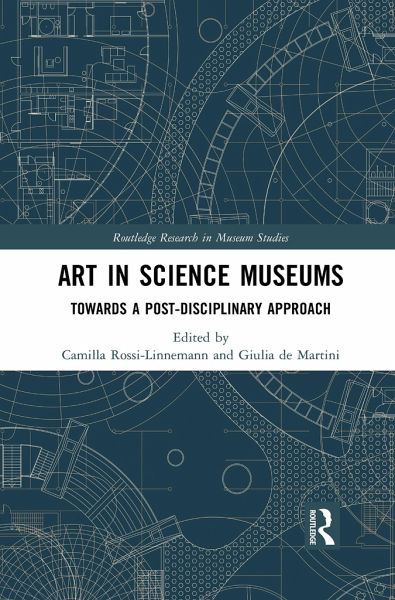
Art in Science Museums
Towards a Post-Disciplinary Approach
Herausgegeben: Rossi-Linnemann, Camilla; Martini, Giulia de
Versandkostenfrei!
Versandfertig in 6-10 Tagen
46,99 €
inkl. MwSt.
Weitere Ausgaben:

PAYBACK Punkte
23 °P sammeln!
Art in Science Museums brings together perspectives from different practitioners to reflect on the status and meaning of art programmes in science centres and museums around the world.Presenting a balanced mix of theoretical perspectives, practitioners' reflections, and case-studies, this volume gives voice to a wide range of professionals, from traditional science centres and museums, and from institutions born with the very aim of merging art and science practices. Considering the role of art in the field of science engagement, the book questions whether the arts might help curators to conve...
Art in Science Museums brings together perspectives from different practitioners to reflect on the status and meaning of art programmes in science centres and museums around the world.
Presenting a balanced mix of theoretical perspectives, practitioners' reflections, and case-studies, this volume gives voice to a wide range of professionals, from traditional science centres and museums, and from institutions born with the very aim of merging art and science practices. Considering the role of art in the field of science engagement, the book questions whether the arts might help curators to convey complex messages, foster a more open and personal approach to scientific issues, become tools of inclusion, and allow for the production of totally new cultural products. The book also includes a rich collection of projects from all over the world, synthetically presenting cases that reveal very different approaches to the inclusion of art in science programmes.
Art in Science Museums should be of great interest to academics, researchers and postgraduate students working in the fields of museum studies, cultural heritage management, material culture, science communication and contemporary art. It should also be essential reading for museum professionals looking to promote more reflective social science engagement in their institutions.
Presenting a balanced mix of theoretical perspectives, practitioners' reflections, and case-studies, this volume gives voice to a wide range of professionals, from traditional science centres and museums, and from institutions born with the very aim of merging art and science practices. Considering the role of art in the field of science engagement, the book questions whether the arts might help curators to convey complex messages, foster a more open and personal approach to scientific issues, become tools of inclusion, and allow for the production of totally new cultural products. The book also includes a rich collection of projects from all over the world, synthetically presenting cases that reveal very different approaches to the inclusion of art in science programmes.
Art in Science Museums should be of great interest to academics, researchers and postgraduate students working in the fields of museum studies, cultural heritage management, material culture, science communication and contemporary art. It should also be essential reading for museum professionals looking to promote more reflective social science engagement in their institutions.





